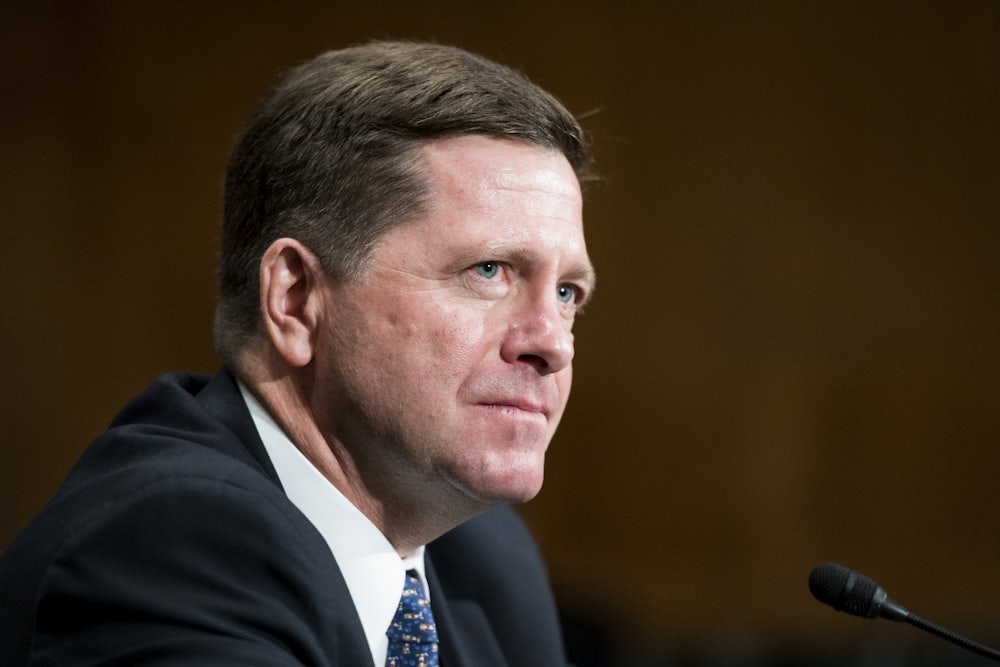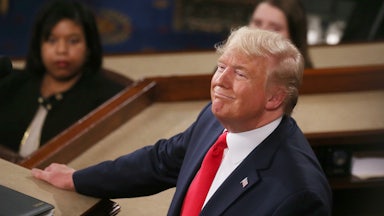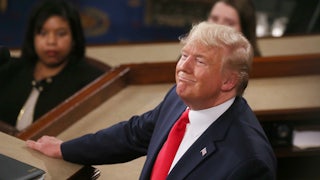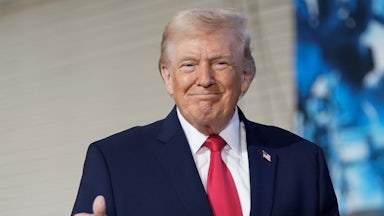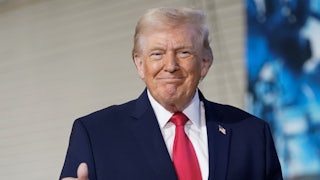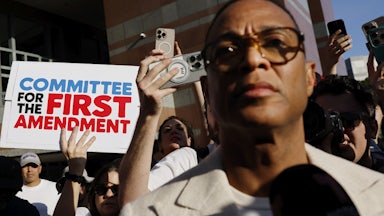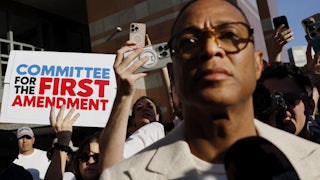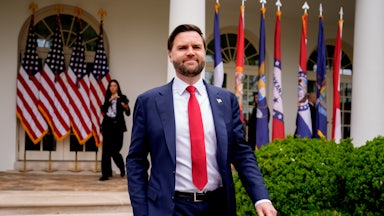Donald Trump’s appointments track record is just about uniformly hideous. From putting a vaccine denier in charge of public health to having our nearly $1 trillion defense colossus run by a guy who thinks it’s cool to be called the War Secretary (but whose only wars so far are against Latin American fishermen and soldiers with beards), to the Rolex-flashing dog-killer who relishes sending innocent people to live in horrendous conditions in foreign prisons … and these are just the first three to spring to mind.
But let’s not give short shrift to his atrocious record on naming prosecutors. First, there was Jeff Sessions; I know he looks tame by today’s Stalinesque standards, and he did stand up to Trump on Russia, but his track record on immigration and deportations, voting rights, and criminal justice was hard-shell right wing. Bill Barr won, and earned, praise for standing up to Trump when he tried to steal the 2020 election, but prior to that, he made a number of moves that only shored Trump up, like essentially burying the Mueller report.
Another of Barr’s lamentable moves involved maybe the most horrific prosecutorial appointment of all: He named, with Trump’s presumed blessing, John Durham as special prosecutor to uncover the truth about the deep state. Durham became a national laughingstock, although his efforts probably weren’t terribly amusing to the two targets against whom he worked up flimsy indictments that juries rejected out of hand.
Which brings us to Jay Clayton. Who is he? Clayton was named over the weekend by Attorney General Pam Bondi—speaking of prosecutorial appointments that would make Francisco Franco smile—to delve into the Jeffrey Epstein affair. Except that when I say “delve into the Jeffrey Epstein affair,” I don’t mean that it is Clayton’s mandate to turn over every last rock to see which American politicians and other movers and shakers may have benefited from Epstein’s, um, generosity over the years.
No—Bondi and her boss have made it quite clear that their official ukase for Clayton involves looking under only rocks that have bright blue D’s painted on them. Trump was quite explicit that Clayton’s targets were to be former Democratic President Bill Clinton, Democratic presidential adviser Larry Summers, and Democratic donor Reid Hoffman.
You do not have to be paid-up members of those men’s fan clubs to understand this as the hideous affront to American custom that it is. For starters, the idea that a president should be ordering up an investigation of specific citizens is a horror; in an America that was actually adhering to its founding ideals, this would in itself be grounds for starting to discuss impeachment. It certainly would have been if Barack Obama had done it, I assure you. But now, that’s just one more norm that Trump has set on fire. Last Friday, on Air Force One, Trump told reporters: “I’m the chief law enforcement officer of the country. I’m allowed to do it.”
Let’s quickly pause here just to note: That statement is an admission of both his laser-instincts directly toward authoritarian rule and his ignorance. Democracy isn’t about what’s allowed. It’s about what’s right—as well as what’s respectful of norms and traditions.
But of course, he ordered it, and—of course—Bondi said, “Yes, sir!” Which brings us around to an examination of who Clayton is, and why Bondi chose him for this obviously political task that has nothing whatever to do with “justice.”
Clayton is mostly a high-finance guy. His career is in corporate law. In Trump’s first term, he chaired the Securities and Exchange Commission. That he did not become a household name in those years indicates to some extent that he probably executed his duties in a comparatively responsible fashion. He oversaw the kinds of deregulatory moves you’d expect from any Republican SEC chair; at the same time, he did initiate some high-profile insider trading cases. One thing that impressed me, and that was at odds with the standard Trumpian flouting of rules of any kind governing the behavior of appointees and their families, is that his wife, a Goldman Sachs official, resigned her position when he took the job. What? People in the Trump solar system acting ethically of their own volition? Hard to imagine how Trump tolerated that small nod to deceny.
So that’s all fine. However: Clayton has no prosecutorial experience at all. Barr said in 2020 that Clayton would be named the U.S. attorney for the Southern District of New York, arguably the most important federal prosecutorial post in the country after the attorney general. But Trump ultimately chose someone else.
Then, earlier this year, Trump named Clayton to run the Southern District. Chuck Schumer blocked the nomination. Trump appointed him on an interim basis for 120 days. Once that period expires, it’s up to the federal court for the district to decide whether the appointment should go forward. In August, seven months after Trump tried to name Clayton, Manhattan’s federal judges decided he should have the job.
So, there he sits, in Foley Square, with all the power his office entails—the associate prosecutors, the investigators, the budget. He’s been a cautious sort so far, although critics noted that when Bondi fired Maurene Comey, the daughter of James Comey who had overseen the prosecutions of Epstein and Ghislaine Maxwell, Clayton said nary a word. In a filing detailing the basis of her lawsuit alleging wrongful termination, Comey said Clayton told her: “All I can say is it came from Washington. I can’t tell you anything else.”
So we return to the question raised higher up in this column: Who is Jay Clayton? In these next several weeks, we’re going to find out. The Aaron Sorkin–movie version of Clayton would have told Bondi to stuff it Saturday and resigned—I do not hold this public trust to go on politically motivated fishing expeditions. But that’s not real life, especially in Trumpworld.
Might he quietly embark on this task and come back early next year, say, and announce that there is no evidentiary basis on which to indict this trio? That would be brave. But if he brings indictments … well, there would be two plausible explanations. One might be that there’s actually evidence sufficient to an indictment. In which case, let justice be done. But in Donald Trump’s, and Pam Bondi’s, America, we would be quite justified in suspecting a second explanation: That Clayton did what he was ordered by the White House to do.
The Trump era is a time of learning what people are made of. I’m guessing that in six months’ time, we’ll know a lot more about Jay Clayton than we know today.
